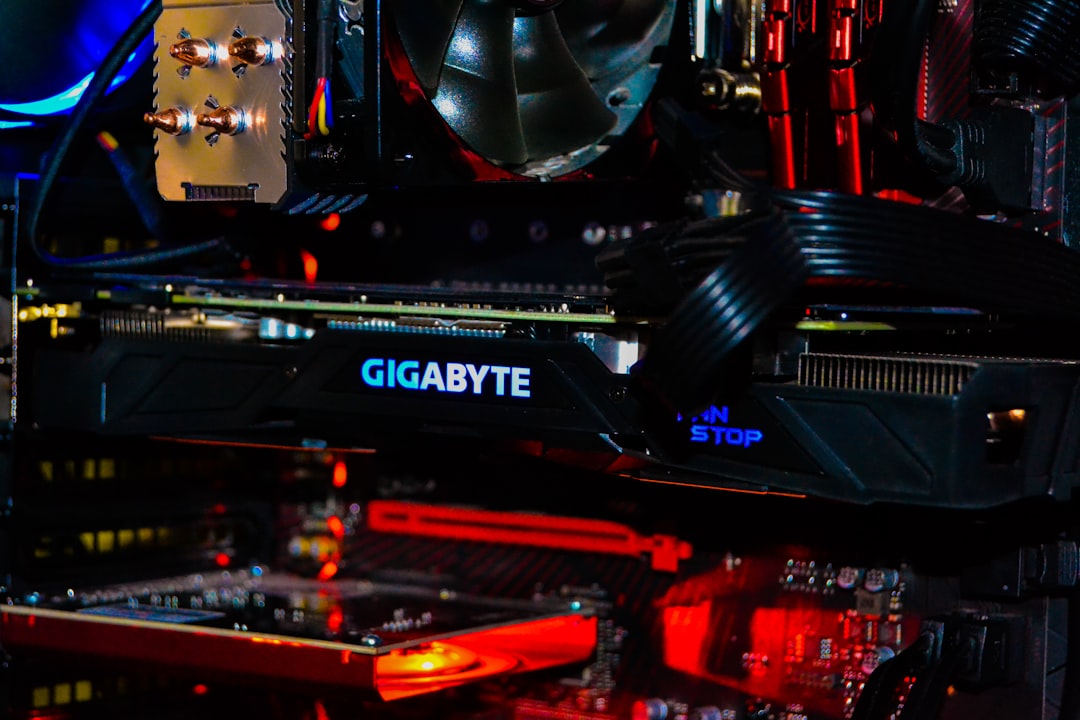Laser hair removal is a popular cosmetic procedure that uses a concentrated beam of light (laser) to remove unwanted hair. The laser targets the pigment in the hair follicles, heating them up and damaging the follicle to inhibit future hair growth. This process is effective in reducing hair growth and can lead to long-term hair reduction. It is important to note that laser hair removal is not a one-time treatment and typically requires multiple sessions to achieve the desired results.
Laser hair removal is a safe and effective method for reducing unwanted hair on various parts of the body, including the face, legs, arms, underarms, and bikini line. It is important to consult with a qualified and experienced professional to determine if you are a suitable candidate for laser hair removal. Additionally, it is essential to understand the potential risks and benefits associated with the procedure before undergoing treatment.
Key Takeaways
- Laser hair removal uses concentrated light to target and destroy hair follicles, resulting in long-term hair reduction.
- Skin type plays a crucial role in determining the effectiveness and safety of laser hair removal treatment.
- It is important to choose the right type of laser based on your skin type to achieve optimal results and minimize the risk of side effects.
- Before undergoing laser hair removal, it is essential to prepare by avoiding sun exposure, shaving the treatment area, and avoiding certain skincare products.
- The laser hair removal process involves the use of a handheld device to deliver pulses of laser light to the treatment area, causing minimal discomfort and lasting only a few minutes per session.
- After treatment, it is important to follow post-treatment care instructions and maintain regular maintenance sessions to ensure long-lasting results.
- Laser hair removal offers benefits such as long-term hair reduction, smoother skin, and convenience, but it is important to consider factors such as cost, potential side effects, and the need for multiple sessions for all skin types.
The Importance of Skin Type
One of the most critical factors to consider when undergoing laser hair removal is your skin type. The Fitzpatrick scale is commonly used to classify different skin types based on their reaction to sun exposure and their susceptibility to burning or tanning. Skin type plays a crucial role in determining the appropriate laser treatment for an individual, as different lasers are designed to target specific skin types and hair colors.
Individuals with lighter skin tones and darker hair typically respond well to laser hair removal, as the contrast between the pigment in the hair and the skin makes it easier for the laser to target the hair follicles. However, individuals with darker skin tones may require a specialized laser that can effectively target the hair follicles without causing damage to the surrounding skin. It is essential to undergo a thorough assessment of your skin type before proceeding with laser hair removal to ensure that the appropriate laser is selected for your specific needs.
Choosing the Right Laser for Your Skin Type
Selecting the right laser for your skin type is crucial for the success and safety of the laser hair removal process. There are different types of lasers available, each designed to target specific skin types and hair colors. The most common types of lasers used for hair removal include alexandrite, diode, Nd:YAG, and IPL (intense pulsed light) lasers.
The alexandrite laser is suitable for individuals with fair to olive skin tones and is effective in targeting light to medium brown hair. The diode laser is versatile and can be used on a wide range of skin types, making it suitable for individuals with light to medium skin tones. The Nd:YAG laser is ideal for individuals with darker skin tones and can effectively target coarse, dark hair. IPL lasers are not technically lasers but are often used for hair removal and can be adjusted to target different skin types and hair colors.
It is essential to consult with a qualified practitioner who can assess your skin type and recommend the most suitable laser for your specific needs. Using the wrong laser for your skin type can result in ineffective treatment or potential damage to the skin, highlighting the importance of selecting the right laser for laser hair removal.
Preparing for Laser Hair Removal
| Aspect | Information |
|---|---|
| Preparation | Avoid sun exposure and tanning beds for at least 6 weeks before treatment |
| Shaving | Shave the treatment area the day before the appointment |
| Medications | Avoid certain medications like blood thinners before the procedure |
| Cosmetics | Avoid using cosmetics, lotions, and deodorants on the treatment area before the appointment |
Before undergoing laser hair removal, there are several essential steps to take to prepare for the procedure. It is crucial to avoid sun exposure and tanning beds for at least six weeks before treatment, as tanned skin can increase the risk of complications and reduce the effectiveness of the laser treatment. Additionally, it is important to avoid plucking, waxing, or electrolysis for at least six weeks before treatment, as these methods can disturb the hair follicle and interfere with the laser’s ability to target the hair.
Shaving the treatment area a day or two before the procedure is recommended, as it allows the laser to target the hair follicle more effectively without singeing any surface hair. It is also essential to avoid using any skincare products that may irritate the skin or make it more sensitive before treatment. Lastly, it is crucial to follow any specific instructions provided by your practitioner to ensure that you are adequately prepared for your laser hair removal session.
The Laser Hair Removal Process
The laser hair removal process typically begins with the application of a cooling gel or numbing cream to the treatment area to minimize discomfort during the procedure. The practitioner will then use a handheld device to deliver quick pulses of laser light to the targeted area. The laser energy is absorbed by the pigment in the hair follicles, heating them up and damaging the follicle to inhibit future hair growth.
The sensation experienced during laser hair removal is often described as a slight stinging or snapping feeling, similar to a rubber band being snapped against the skin. The duration of the treatment session will depend on the size of the treatment area, with smaller areas such as the upper lip taking only a few minutes, while larger areas like the legs may take up to an hour.
After the treatment session, it is common for the skin to appear red and feel sensitive, similar to a mild sunburn. This reaction typically subsides within a few hours to a few days, depending on the individual’s skin sensitivity. It is essential to follow any post-treatment care instructions provided by your practitioner to ensure optimal results and minimize any potential side effects.
Post-Treatment Care and Maintenance

Following laser hair removal, it is essential to take proper care of your skin to ensure optimal results and minimize any potential side effects. It is crucial to avoid sun exposure and tanning beds for at least six weeks after treatment, as the skin may be more sensitive and prone to damage during this time. Additionally, it is important to avoid hot baths, saunas, or activities that may cause excessive sweating for a few days after treatment.
It is common for treated hairs to fall out within a few days to a few weeks after treatment, and it may take multiple sessions to achieve the desired results. It is essential to follow up with your practitioner’s recommended treatment schedule to ensure that you are receiving the appropriate number of sessions for optimal results.
It is also important to continue protecting your skin from sun exposure even after completing your laser hair removal sessions, as sun damage can affect the results of your treatment. Using sunscreen with a high SPF and wearing protective clothing can help maintain the long-term benefits of laser hair removal.
Benefits and Considerations for All Skin Types
Laser hair removal offers numerous benefits for individuals of all skin types, including long-term reduction in unwanted hair growth, smoother skin, and reduced risk of ingrown hairs. However, it is essential to consider certain factors when undergoing laser hair removal, regardless of your skin type.
One consideration is that laser hair removal may not be suitable for individuals with certain medical conditions or those taking specific medications that can make their skin more sensitive to light. It is crucial to disclose any medical conditions or medications you are taking to your practitioner before undergoing treatment.
Another consideration is that while laser hair removal can effectively reduce unwanted hair growth, it may not lead to permanent hair removal. Maintenance sessions may be required to sustain long-term results. Additionally, individual responses to treatment may vary based on factors such as hormone levels and genetics.
In conclusion, understanding laser hair removal, considering your skin type, choosing the right laser for your specific needs, preparing for treatment, following proper post-treatment care, and considering both benefits and potential considerations are essential aspects of undergoing laser hair removal for all skin types. By carefully considering these factors and working with a qualified practitioner, individuals can achieve effective and safe results from laser hair removal treatments.
If you’re considering laser hair removal, it’s important to understand the factors that can affect its effectiveness. In a recent article on inlaserhairremoval.com, the author delves into the question of whether laser hair removal is truly permanent. This is particularly relevant for individuals with all skin types, including black skin, as different skin tones can impact the results of the treatment. It’s essential to be well-informed about the potential outcomes and limitations of laser hair removal before making a decision.
FAQs
What is laser hair removal?
Laser hair removal is a cosmetic procedure that uses a concentrated beam of light (laser) to remove unwanted hair. The laser targets the pigment in the hair follicles, damaging them and inhibiting future hair growth.
How does laser hair removal work?
During laser hair removal, the pigment in the hair follicles absorbs the light from the laser. This damages the follicle and inhibits future hair growth. Multiple sessions are usually required to achieve long-term hair reduction.
Is laser hair removal safe for all skin types?
Laser hair removal can be safe for all skin types, including black skin, when performed by a qualified and experienced professional. It is important to use the appropriate type of laser for different skin tones to minimize the risk of complications.
Are there any risks or side effects associated with laser hair removal?
Some potential risks and side effects of laser hair removal include skin irritation, redness, and changes in skin pigmentation. These risks can be minimized by ensuring the procedure is performed by a qualified and experienced professional.
How many sessions are typically needed for laser hair removal?
The number of sessions needed for laser hair removal varies depending on the individual and the area being treated. On average, most people require 6-8 sessions spaced several weeks apart to achieve long-term hair reduction.
Is laser hair removal permanent?
Laser hair removal can lead to long-term hair reduction, but it is not always permanent. Some hair may eventually grow back, but it is typically finer and lighter in color. Periodic maintenance sessions may be needed to maintain the results.






